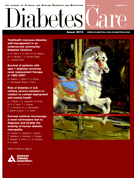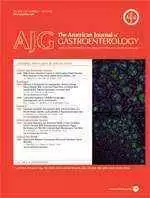
Celiac.com 08/02/2010 - It has been well documented that Type 1 diabetics' risk for thyroid disease and celiac disease are very high. As such the American Diabetics Association advises young children and adolescents that are diagnosed with Type 1 diabetes, to also have their thyroid function monitored and undergo celiac screening.
Between 1990 and 2008, under the direction of Dr. Katharina Warncke of Technische Universitat Munchen, data from 28, 671 type 1 diabetes patients under the age of 30 with at least one autoantibody measurement, were enrolled in a study in Germany and Austria to assess the risks of additional autoimmunities for type 1 diabetics.
Celiac.com Sponsor (A12):
Of the 15,000 patients that were screened for beta-cell antibodies, 81.6% of them were discovered to have at least one. Those that did not have any beta-cell antibodies were found to be considerably younger than the patients with the antibodies when they first developed diabetes. However, patients with beta-cell antibodies were not more or less likely to have additional markers, indicating that autoimmunity cannot be established as an indicator of additional autoimmunities.
Of the 25,000 patients that were screened for thyroid autoantibodies, 19.6% had positive results. And of the 14, 300 who were screened for tissue transglutaminase, 10.7% tested positive for the celiac disease marker.
Female patients were more likely to be thyroid antibody-positive, and patients with thyroid antibodies were usually older and had a longer period of diabetes when compared to patients without the antibodies. Patients with positive tissue transglutaminase assays where discovered to have a longer duration of diabetes as well.
Of the patients studied for parietal cell antibodies, only 283 were found to be positive. Those patients were also older and had a longer duration of diabetes than those found to be negative. Ninety-Four patients were shown to have anti-adrenal antibodies.
Unfortunately, the researchers for the study did not have data on the actual reasons for parietal cell antibody and anti-adrenal antibody testing. So the high numbers of patients with positive results cannot be evaluated accurately. However the researchers indicate that it may be due to selection factors such as underlying disorders or cost factors.
Source:
- Open Original Shared Link








Recommended Comments